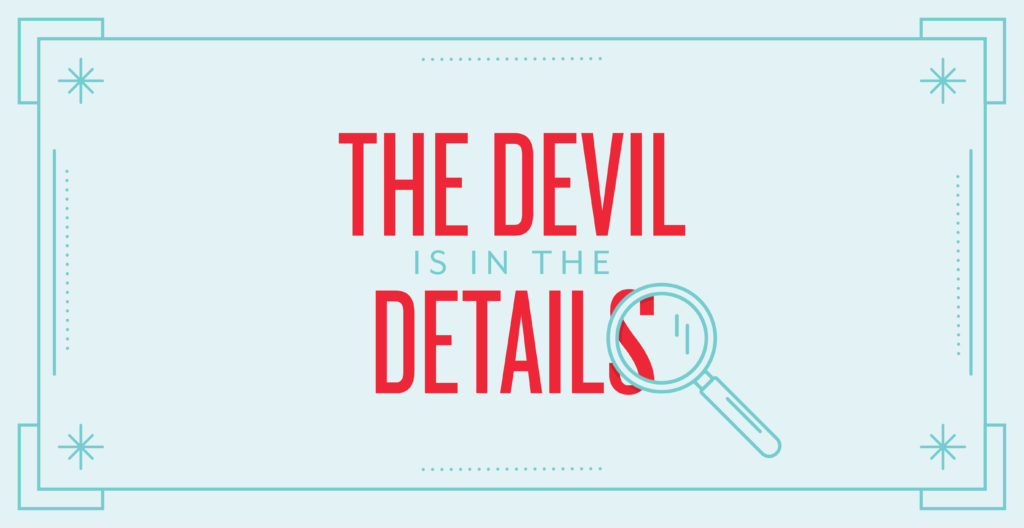The Devil Is in the Details

At first blush, your project might look simple enough on the surface. What you may not realize (and what we’ve come to specialize in) is that even the tiniest of details you may initially brush over play a huge role in determining whether or not your idea is a stud or a dud.
Everything from print specs, to aspirational designs, down to individual hex codes for your brand colors has a massive impact on the design process. Even being one number off drastically changes the entire palette of a brand or project. For example, in our R&R palette, if you unintentionally switch #F32735 for #F327E5 (which is honestly not the hardest thing to do since the “E” and “3” are right next to each other on the keyboard), our entire aesthetic would be extremely different than what you know and love today.

We ask a lot of questions at the beginning of our process (if you haven’t realized by now, we love process). The details uncovered in this initial research phase allow us to create a roadmap for the timeline, deliverables and creative process of your project. Even unusual questions like “What in your mind will determine if this project is successful?” challenges our partners to think deeper into the “why” of their efforts, making it more affective for our team to get to the center idea.
Our research and immersion phase play a huge role in discovering the details that matter to a project. Here are a few time-tested tips we always recommend before diving into an idea!
- Slow down. At the beginning of a project it’s easy to break out of the gate with lots of ideas and high energy. Take the time to ensure you’ve crossed all your t’s and dotted all your i’s.
- Organization is essential. Folders are your friends. This can include both your desktop and your inbox. Knowing you have a system to monitor the flow of information and track all files and communication will help alleviate so much stress.
- Remember: You don’t know what you don’t know. Ask questions! You hired experts to be just that – EXPERTS! If you want to know why something is the way it is, usually there’s a good reason why decisions were made.
“It’s not how you start, but how you finish that matters.” This saying is often tossed around in sports allowing the winning team to justify what might not have been their squad’s best game day. While that may be true, we believe that a fantastic, detail-oriented start often paves the way to a much easier time getting across the finish line—in style.

